
Profiles

Paolo Bernardi University of Padova
Paolo Bernardi received his M.D. degree from the University of Padova, Italy in 1978. A year later, he became assistant professor at the University of Padova Medical School and was promoted to associate professor in 1988. During this time, he was also a Fogarty fellow and visiting scientist under the supervision of Harvey F. Lodish at MIT's Whitehead Institute for Biomedical Research. In 2000, Bernardi's promotions continued from full professor, to Deputy Dean, to Chairman, to Director and then finally to his current position as Coordinator of the PhD program in Cell Biology at the University of Padova.
Bernardi began his career under the guidance of Giovanni Felice Azzone, one of the founding fathers of Bioenergetics. He pioneered the field of mitochondrial physiology, and developed tools to reliably monitor mitochondrial function and address mechanistic questions on how mitochondrial targets can influence cancer cells and prevent cell death in degenerative diseases. His studies have been extended to in vivo models, and led to the demonstration that early mitochondrial adaptation plays a key role in hepatocarcinogenesis. In 2012, Dr. Bernardi received the prize for Physiology and Pathology from the Accademia Nazionale dei Lincei.
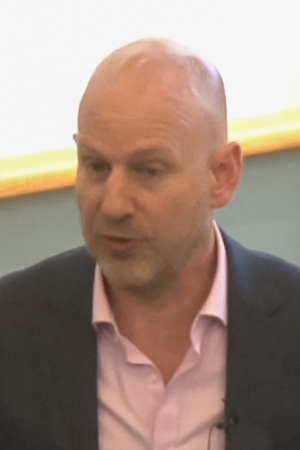
Charles Brenner University of Iowa
Charles Brenner is the Roy J. Carver Chair of Biochemistry and a codirector of the Obesity Initiative at the University of Iowa. Brenner graduated from Wesleyan University and then received his PhD from Stanford University School of Medicine under the supervision of Robert S. Fuller. He conducted post-doctoral research at Brandeis University with biochemist Gregory Petsko and then took his first academic position at Thomas Jefferson University in 1996. In 2003, he moved to Dartmouth Medical School, becoming an Associate Director for Basic Sciences at the Norris Cotton Cancer Center. In 2009, he was recruited for the position he currently holds as Chair of Biochemistry at the University of Iowa. Dr. Brenner has made many contributions to molecular biology and biochemistry. His research themes surround problems involved in metabolic control of gene expression including characterization of the Kex2 proprotein convertase, the first human trial of nicotinamide riboside, and the analysis of the NAD+ metabolome. He is actively working to treat and prevent human conditions including diabetes and cancer. In 2012, he was the recipient of the Holden Comprehensive Cancer Center Oberley Award as well as the ASBMB Award for Exemplary Contributions to Education in 2016.

Valerio Carelli University of Bologna
Valerio Carelli received his degree in medicine in 1990 at the University of Bologna School of Medicine. From 1990 to 1994 he completed his residency in Neurology then moved on to receive a PhD in Neuroscience at the University of Verona School of Medicine in 1998. His thesis was on "Leber's Hereditary Optic Neuropathy: investigations on its pathogenesis at biochemical, cellular and morphological level". In 1998 his career began as a research associate of the Department of Opthalmology at the Keck School of Medicine in the University of Southern California. In 2001 he obtained the position that he currently holds as Tenure Permanent Researcher and chief of the Laboratory of Neurogenetics at the University of Bologna School of Medicine where his research focuses pathological features of mitochondrial dysfunction, with an emphasis on optic neuropathy. In 2003 he also became Research Assistant Professor of Opthalmology without remuneration at the Keck School of Medicine of the University of Southern California.
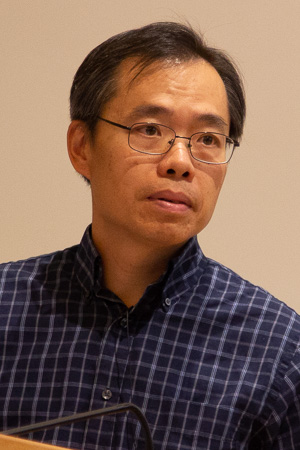
David Chan California Institute of Technology
David Chan is a Professor of Biology at the California Institute of Technology. In 1988, Chan received his A.B. from Harvard College. He obtained his MD at Harvard Medical School in 1996 and then later that same year he received his PhD under the supervision of Philip Leder. He completed postdoctoral research at MIT's Whitehead Institute for Biomedical Research with Peter Kim. Dr. Chan became Assistant Professor at Caltech in 2000 until 2006, when he became Associate Professor. He earned professorship in 2010 at Caltech. Chan was also Investigator at the Howard Hughes Medical Institute from 2008 to 2015. Chan's research group focuses on understanding mitochondrial dynamics in cellular function and human physiology with specialized emphasis on the mechanisms of mitochondrial membrane fusion and fission.

Navdeep S Chandel Northwestern University
Navdeep Chandel is currently a David W. Cugell Professor of Medicine and Cell Biology at Northwestern University. He received his PhD in Cell Physiology from the University of Chicago Pritzker School of Medicine in 1996 under the direction of Paul T. Schumacker where he foucused on the kinetics of mitochondrial cytochrome c oxidase. He is involved with several institutions including the Center for Diabetes and Metabolism, Chemistry of Life Processes Institute, Northwestern University Skin Disease Research Center, Robert H. Lurie Comprehensive Cancer Center and the Simpson Querrey Center for Epigenetics. His work revolves around reactive oxygen species and how low levels of ROS are critical for healthy cellular function. His lab is also identifying how mitochondria have mechanistically evolved in cellular processes to maintain homeostasis and promote stress-induced adaptations. Dr. Chandel received the National Cancer Institute's Outstanding Investigator Award in 2016 to explore the mechanisms of mitochondrial metabolism in cancer.
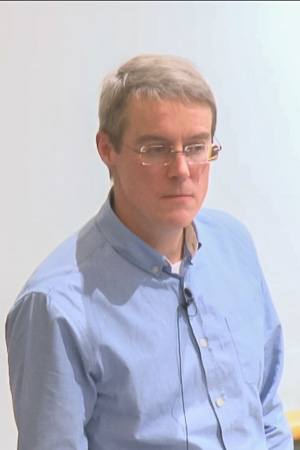
Patrick Chinnery University of Cambridge MRC Mitochondrial Biology Unit
Patrick Chinnery is currently Programme Leader of the Medical Research Council Mitochondrial Biology Unit of the University of Cambridge. He received a Bachelor's degree in Neuroscience, followed by him qualifying in medicine in 1992. After about three years of general medical training, Patrick studied for a PhD as a Wellcome Trust Clinical Research Training Fellow investigating the molecular basis of mitochondrial diseases. After this, he combined a Postdoctoral Research Fellowship from the Wellcome Trust with clinical training in neurology and genetics in Newcastle and neurogenetics at Queen Square in London. He was appointed Lecturer and then Senior Lecturer in Newcastle in 2002 before becoming Professor of Neurogenetics at Newcastle University in 2004. In 2003, he became a Wellcome Trust Senior Fellow in Clinical Science (renewed 2018 & 2013).
Identifying as a clinical neurologist with an interest in neurogenetics, his work revolves around the relationship between mitochondria and human disease and he is particularly interested in the mechanisms of mitochondrial inheritance that modulate clinical expression of mitochondrial disorders. He received the Foulkes Foundation Medal in 2011. In addition, Dr. Chinnery has received numerous fellowships including: Fellow of the Royal College of Physicians (2006), Fellow of the Royal College of Pathologists (2007), Fellow of Academy of Medical Sciences (2009), and Fellow of the American Neurological Association (2011).
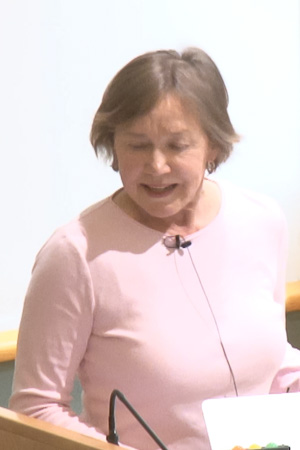
Anne Chomyn California Institute of Technology
Anne Chomyn received her B.S. from Drexel University in 1972 before receiving her PhD in Biochemistry at the California Institute of Technology from 1972 to 1979. Her specialty is mammalian mitochondrial biogenesis and mutagenesis. Anne's career consists of twenty-two years spent as Senior Research Associate at Caltech. Due to her contributions to academia, she was granted the position of Senior Research Associate Emerita at the California Institute of Technology in 2007. In addition to the position she currently holds as Senior Research Associate, Anne became Howard Hughes Medical Institute Research Specialist at Caltech in February 2009 until May 2012.

Jose Antonio Enriquez Fundación Centro Nacional de Investigaciones Cardiovasculares
José Antonio Enríquez received a degree in Biochemistry and Molecular Biology from the Autonomous University of Madrid and a doctorate from the University of Zaragoza (UniZar) in 1992 under the supervision of Julio Montoya and Manuel José Lopez-Pérez. During his thesis he studied several aspects of mitochondrial DNA biogenesis (mtDNA). Between 1993 and 1997 he worked with Guisseppe Attardi at the California Institute of Technology, where he investigated the pathogenic action of mutated mitochondrial tRNAs. His work during this period helped to define the molecular mechanism underlying this phenomenon and helped to establish a general methodology for the study of mitochondrial tRNAs. This methodology has been applied in studies of mitochondrial biogenesis, as well as in the analysis of diseases related to mtDNA. José Antonio became a professor at UniZar in 2007. He joined the National Center for Cardiovascular Investigations (CNIC) in 2009, where he established the GENOXPHOS (Functional Genetics of the Oxidative Phosphorylation System) and he focuses on elucidating the molecular mechanisms of mitochondrial dysfunction in cardiovascular disease and ischemic processes.
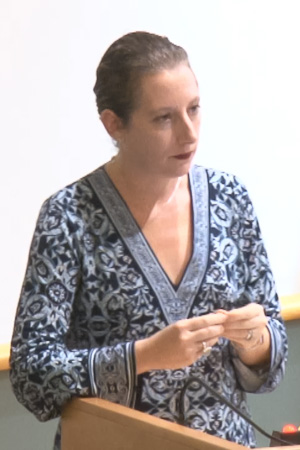
Marni Falk Children’s Hospital of Philadelphia
Marni Falk is a physician and Executive Director of the Mitochondrial Medicine Frontier Program at the Children's Hospital of Philadelphia. She received both her B.S. in Biology and her M.D. while at the George Washington University School of Medicine. She also completed a five year Pediatrics and Clinical Genetics residency program at Case Western Reserve University in Cleveland, Ohio. Dr. Falk's focus is to improve clinical care, diagnostic approaches, therapies, and genomic resources for mitochondrial disease. She serves as Chair, Scientific and Medical Advisory Board and member of the CHOP/UPENN Mitochondrial Research Affinity Group. She is also part of the Board of Trustees of the United Mitochondrial Disease Foundation, a founding member of the CHOP Center of Mitochondrial and Epigenomic Medicine. Additionally she has an active role with the Mitochondrial Medicine Society, Society for Pediatric Research, Society for Inherited Metabolic Disease, American Society of Human Genetics, and American College of Medical Genetics and Genomics; and elected member of the University of Pennsylvania John Morgan Society, Interurban Clinical Club, and American Society of Clinical Investigators. Dr. Falk has directed multiple clinical treatment trials in mitochondrial disease patients and authored more than a hundred publications with an emphasis placed on mitochondrial disease.

Maria Falkenberg University of Gothenburg
Maria Falkenberg is a professor in the Department of Medical Biochemistry and Cell biology at the University of Gothenburg, Sweden. She received her PhD in Medical Biochemistry from the University of Gothenberg in 2000 under the supervision of Per Elias. She continued her postdoctoral research under Nils-Goran Larsson at the Karolinska Institute until 2003, where she initiated her own group. Her work revolves around the regulatory mechanisms of human mitochondrial DNA replication, in addition to the consequences of gene mutations required required for mitochondrial DNA maintenance. She has received the Fernstroms prize (2009), the Sven and Ebba-Christina Hagberg prize (2010), and was elected to the Royal Swedish Academy of Sciences in 2015.

Toren Finkel University of Pittsburgh
Toren Finkel is the Director of the Aging Institute of UPMC Senior Services and the University of Pittsburgh. He is also a professor of medicine at the University of Pittsburgh in the Division of Cardiology and currently holds the title of G. Nicholas Beckwith III and Dorothy B. Beckwith Chair in Translational Medicine. Dr. Finkel received his B.S. at the University of Maryland in 1979. He then received his PhD at Harvard University, followed by his M.D. at Harvard Medical School in 1986. Previously head of the Center for Molecular Medicine for the National Heart, Lung, and Blood Institute (NHLBI) of the NIH, Dr. Finkel's laboratory focuses on dissecting mitochondria, metabolism, and autophagy/mitophagy in order to uncover the molecular basis of mammalian aging and age-related diseases mammalian aging. He has received notable awards including the Ellison Medical Foundation Senior Scholar in Aging Award (2006-2010), the NHLBI Director's Award for Outstanding Translational Science, and the NHLBI Orloff Innovation Award (2016).

Michael W. Gray Dalhousie University
Michael Gray is a Professor Emeritus of the Department of Biochemistry & Molecular Biology at Dalhousie University in Canada. Gray received a PhD and was awarded Fellow of the Royal Society of Chemistry. He joined the department at Dalhousie University in 1970 and was head of the department from 2004 until 2007. His research revolves around the study and analysis of the structure, function, and evolution of mitochondria; and protist genomics. In particular, his group explores mitochondrial gene evolution and RNA editing within unicellular eukaryotes.

Claes Gustafsson University of Gothenburg
Claes Gustafsson is a professor at the University of Gothenburg, Sweden. There, he works as part of the Department of Medical Biochemistry and Cell biology at the Institute of Biomedicine. Gustafsson received his PhD in Medical Biochemistry from the University of Gothenburg under the direction of Per Elias. He continued his postdoctoral work in the laboratory of Roger D. Kornberg at Stanford University School of Medicine before establishing his own laboratory at the Karolinska Institutet. Later rejoining the University of Gothenburg, his research focuses on how the process of mitochondrial transcription is regulated in response to the respiratory needs of the eukaryotic cell. Additionally, the laboratory analyzes the molecular basis for mitochondrial DNA separation. Dr. Gustafsson was elected in 2008 as a member of the Royal Swedish Academy of Sciences.
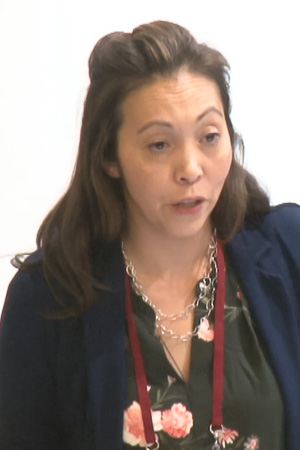
Marcia Haigis Harvard Medical School
Marcia Haigis holds a PhD in biochemistry from the University of Wisconsin-Madison and is currently a professor in the department of Cell Biology at Harvard Medical School in Boston, MA. Dr. Haigis received postdoctoral training at MIT studying mitochondrial metabolism. She is a member of both the Paul F Glenn Center for the Biology of Aging and the Ludwig Center at Harvard Medical School. Dr. Haigis has contributed to understanding the role that mitochondrial sirtuins play in metabolism and disease. This has led to her receiving a number of honors, including the Ellison Medical Foundation New Scholar Award, the Brookdale Foundation Leadership in Aging Award, and the selection for the National Academy of Medicine's Emerging Leaders in Health and Medicine Program.

György Hajnóczky Thomas Jefferson University
György Hajnóczky is a Professor within the Department of Pathology, Anatomy and Cell Biology at Thomas Jefferson University and director of the MitoCare Center for Mitochondrial Imaging Research and Diagnostic Center. Dr. Hajnóczky received a PhD in Molecular Physiology and a M.D. from Semmelweis University, Hungary. In 1987, he began teaching Physiology to medical students and pursued cell signaling research in a PhD program sponsored by the Hungarian Academy of Sciences in Budapest, Hungary. The main objective of this research group is to reveal the critical roles that mitochondria play in intergrating cell and tissue function through their dynamics and interactions with other cell structures. Interconnected with this research approach, his group also develops microscopic imaging techniques to further clarify the mechanisms of mitochondrial signaling and dynamics. Dr. Hajnóczky has also been elected a member of the Hungarian Academy of Sciences.

Mary Herbert Newcastle Fertility Centre and Wellcome Trust Centre for Mitochondrial Research
Mary Herbert is a professor of Reproductive Biology in the Institute of Genetic Medicine at Newcastle University and an Honorary Consultant Clinical Scientist. She leads a team of clinical and research scientists working side by side in a program of basic, transitional and clinical science. Her lab aims to advance knowledge in the biology of germ cells and early embryos to improve the treatment and understanding of infertility, and extending the scope of reproductive technologies to prevent transmission of disease. Dr. Herbert is also a Fellow of the Royal College of Pathologists and serves on the advisory board for the Association of Clinical Embryologists in the UK.
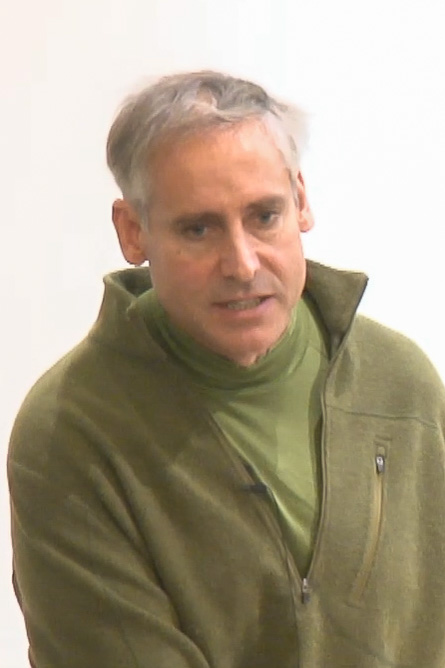
Henry Higgs Geisel School of Medicine at Dartmouth
Henry Higgs is a professor in the department of Biochemistry at the Geisel School of Medicine at Dartmouth. He received his PhD in Biochemistry from the University of Washington in 1996 which was followed by postdoctoral fellowships at the University of Washington under John Glomset, and at the Salk Institute under Thomas Pollard. His research interests include the many ways mammalian cells use actin filaments. These actin filaments are crucial to at least 20 distinct cellular processes in mammals and his lab focuses on the discovery of more processes. Dr. Higgs received a NIIH National Research Service Award (1998-2001), as well as a Pew Biomedical Research Scholar (2003-2007).
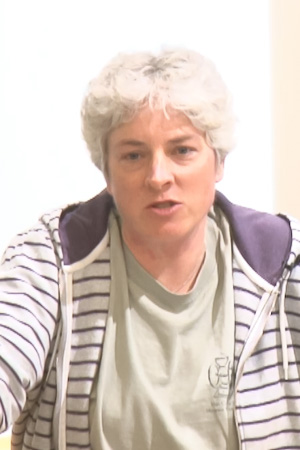
Judy Hirst MRC Mitochondrial Biology Unit
Judy Hirst is British scientist specializing in mitochondrial biology. She is Deputy Director of the MRC Mitochondrial Biology Unit at the University of Cambridge. Mary received her MA in Chemistry in 1994 and was awarded a PhD in Chemistry from Lincoln College Oxford while being supervised by Fraser Armstrong. Thereafter, Dr. Hirst was a Wellcome Trust fellow at the Scripps Research Institute in La Jolla, Californial As of 2018, Hirst is Dean of the College and Fellow and Director of studies in Chemistry at Corpus Christi College of the University of Cambridge. Her research interest is understanding the molecular mechanism of mammalian mitochondrial complex I and its role in human diseases such as Parkinson's. She was recipient of an interdisciplinary prize from the Royal Society of Chemistry (2018), as well as being elected a Fellow of the Royal Society in 2018.
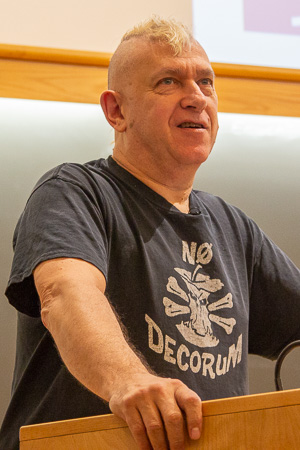
Howard Jacobs Univeristy of Tampere
Howard Jacobs is a professor of Molecular Biology at the University of Tampere, Faculty of Medicine and Biosciences and served as Director of the Institute of Biotechnology at Viikki Campus, University of Helsinki. Jacobs received a PhD from the University of Glasgow in 1980. Since 2002, he has headed the National Center of Excellence in Research, FinMIT. This includes four research groups from the University of Helsinki and Tempere. The unit investigates various disease mechanisms using cultured cells and model organisms, such as banana flies, which carry mitochondrial gene defects, as well as researching alternative respiratory-chain enzymes. His research team received the prestigious, EU-awarded Descartes Award in 2004. Additionally, Dr. Jacobs was chosen as Professor of the Year (2009) by the Finnish Union of University Professors.
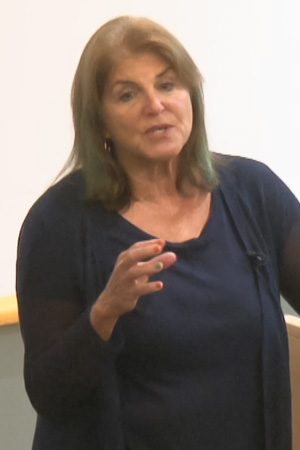
Laurie S. Kaguni Michigan State University
Laurie S. Kaguni received a B.A. from the University of California, San Diego in 1974, and a PhD from the University of California, Los Angeles in 1980. She conducted postdoctoral work at Stanford University, where she was a research fellow for both the National Institutes of Health and the American Cancer Society. Dr. Kaguni is currently a professor and director of the Michigan State University Center for Mitochondrial Science and Medicine, and is internationally recognized for her expertise in the structural and mechanistic biochemistry of mitochondrial DNA replication. Her research aims to understand the molecular mechanisms that relate to the replication and expression of mitochondrial DNA genomes and their regulation. Dr. Kaguni was appointed as a Distinguished Professor both at University of Tampere and at Michigan State University where she currently resides.
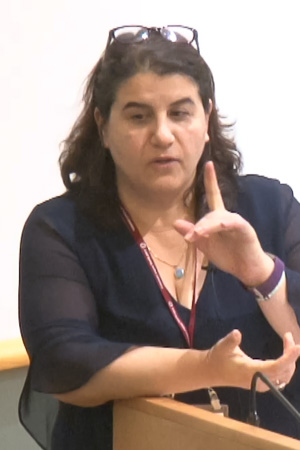
Emine C. Koc Marshall University School of Medicine
Emine C. Koc is a Professor in the Department of Biomedical Sciences at Marshall University, United States. Previously a Professor within the Biological Sciences department at Pennsylvania State University, her research interests include protein synthesis in mammalian mitochondria. Dr. Koc is the member of many international affiliations. She is serving as an editorial member and reviewer of several international reputed journals and has successfully completed her administrative responsibilities. Her research at Marshall University focuses on discovering new strategies to manipulate mitochondrial function/dysfunction in metabolic diseases, cancer, and aging.
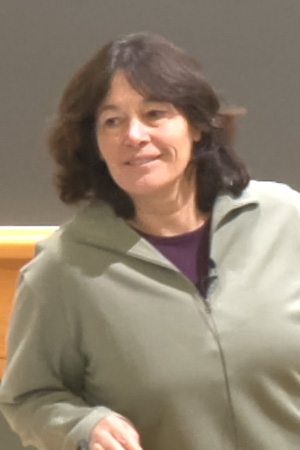
Carla Koehler UCLA
Carla Koehler earned a M.S. and a PhD from Iowa State University and then completed postdoctoral research in the laboratory of Dr Gottfried Schatz at the Biozentrum of the University of Basel, Switzerland. Koehler's research characterized a new protein import pathway in the mitochondria and linked a defect in protein import with the inherited disease deafness-dystonia syndrome. Dr. Koehler is a former Damon Runyon Scholar and current Established Investigator of the American Heart Association. Dr. Koehler is an Associate Editor for Current Genetics. She has been a member of the Molecular Biology Institute, Jonsson Cancer Center, and the Brain Research Institute since 1999. Her current research focuses on developing vertebrate models for mitochondrial diseases as well as using yeast for mechanistic studies on mitochondrial biogenesis.
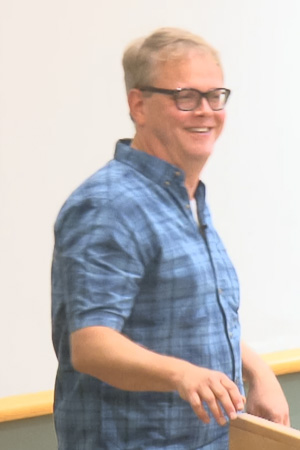
Edmund R. Kunji University of Cambridge
Edmund Kunji obtained his PhD in Mathematics and Natural Sciences with Wil N. Konings and Bert Poolman in the Department of Molecular Microbiology of the University of Groningen, 1997. From 1996 to 2000, Kunji did his postgraduate studies at the MRC Laboratory of Molecular Biology in Cambridge with Dr. Richard Henderson. He became a research group leader at the MRC Mitochondrial Biology Unit at the University of Cambridge, an EMBOYoung Investigator, and Staff Fellow and Director of Studies of Trinity Hall in 5 years. The research interest of his group is the role of mitochondrial carrier proteins in the transport of metabolites, cofactors and ions across the mitochondrial inner membrane, and how these processes may be disrupted in diseases.
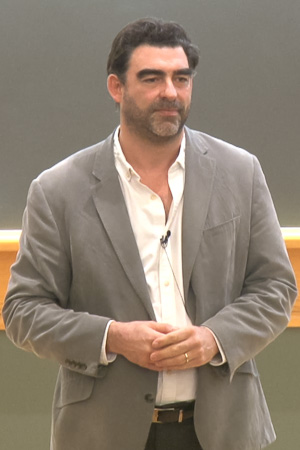
Nick Lane University College London
Nick Lane earned his PhD at the Royal Free Hospital Medical School in 1995. He is currently a professor of Evolutionary Biochemistry within the Department of Genetics, Evolution and Environment at University College London. His work focuses on the origin of life, and the origin and evolution of eukaryotes. Specifically, the process of chemiosmosis, through which cells generate energy in the form of ATP by way of proton gradients across membranes. His research on evolutionary biochemistry and bioenergetics has led to him being awarded the inaugural Provost's Venture Research Prize in 2009. He has also received the BMC Research Award for Genetics, Ginomics, Bioinformatics and Evolution (2011), the Biochemical Society Award (2015), and the Royal Society Michael Faraday Prize and Lecture (2016). Dr. Lane is a founding member of the UCL Consortium for Mitochondrial Research and is leading the UCL Research Frontiers Origins of Life program. He is also the author of four critically acclaimed books on evolutionary biochemistry.

Nils-Göran Larsson Max Planck Institute for Biology of Ageing
Nils-Göran Larsson began his PhD studies on pathogenic mitochondrial DNA mutations causing mitochondrial disease in 1987. In the early 90’s, Larsson decided to get proper training in biochemistry and mouse genetics and went to Stanford University as a HHMI Physician Postdoctoral Fellow in 1994. In 1997 he returned to Sweden to start his own research group at Karolinska Institute and developed a series of powerful mouse models to study the role of mitochondrial DNA expression in normal physiology and disease pathophysiology. He remained affiliated with Karolinska Institute and kept a small research group there from 2008 to 2015. He returned in 2016 to become head of the department of Medical Biochemistry and Biophysics. As of 2019, he is an external member of the Max Planck Society. Dr. Larsson has received numerous awards including the 2002 Goran Gustafsson Prize in Medicine, the 2004 Descartes EU award, the 2006 Jubilee Prize, and the 2008 Hilda and Alfred Erikssons Prize.
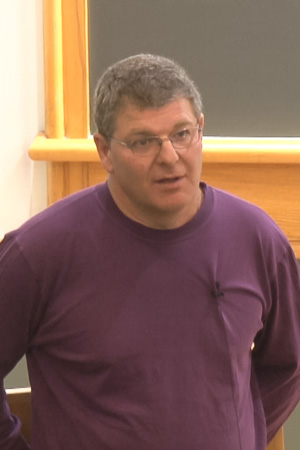
Dan Mishmar Ben-Gurion University of the Negev
Dan Mishmar received a PhD in Genetics from the Hebrew University of Jerusalem in 2000 under the supervision of Batsheva Kerem. He received postdoctoral training in the laboratory of Doug Wallace at the University of California Irvine from 2000-2004. He is currently a professor at Ben-Gurion University of the Negev in Beersheba, Israel where the current focus of the group is investigating the genetic and evolutionary principles that govern mitochondrial genetic variation between individuals and within cells in health and disease conditions. He was recognized for scholarship of excellence in research from the Israeli Cancer Association in 2009, and received the Wolfson award for excellence in diabetes research in 2010 from the Israeli Diabetes Association.

Vasmi K. Mootha Massachusetts General Hospital
Vamsi Mootha received his B.S. in Mathematical and Computational Science at Stanford University and an M.D. from the Harvard-MIT Division of Health Sciences and Technology. He then completed his residency in internal medicine at Brigham and Women's Hospital and postdoctoral training at Whitehead Institute under the direction of Eric Lander. Vamsi now directs a laboratory at Massachusetts General Hospital, and is both an Investigator of the Howard Hughes Medical Institute and an institute member of the Broad Institute. Vamsi has received numerous awards including a MacArthur Prize, the Judson Daland Prize, the Keilin Medal of the Biochemical Society, and election to the National Academy of Sciences. His research group works collaboratively to elucidate the network properties of mitochondria, and how these properties go awry in human disease. His work has led to many discoveries such as the discovery of nearly 20 Mendelian disease genes, the discovery that mitochondrial dysfunction is associated with the common form of type 2 diabetes mellitus, and to the discovery of all of the molecular components of the mitochondrial calcium uniporter.
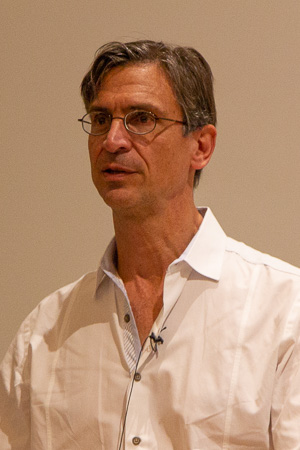
Carlos T. Moraes University of Miami
Carlos T. Moraes achieved both his BA in Biomedical Sciences and MSc in Biochemistry and Molecular Biology from Escola Paulista de Medicina in Brazil. He then went on to receive his MA and PhD in Genetics and Development at the University of Columbia. Dr. Moraes is currently the Esther Lichtenstein Professor of Neurology in the Leonard M. Miller School of Medicine at the University of Miami. His lab's research focuses on molecular biology of mitochondria, mitochondrial genetics in human diseases, and the role of mitochondria in cell death and growth. His work has earned him awards such as the Samuel W. Rover and Lewis Rover Award in 1993 for Research in Genetics and Development and the Pew Scholar in the Biomedical Sciences in 1999.

David G. Nicholls Buck Institute for Research on Aging
David Nicholls earned a PhD in Biochemistry from the University of Bristol in 1968 before completing postdoctoral research within the Departments of Biochemistry at the University of Stockholm and the University of Nottingham. He was hired as a professor for the University of Dundee in 1974 and remained there for over 25 years. In 2000, he became one of the founding faculty and a professor of Mitochondrial Physiology for the Buck Institute for Research on Aging, California. His main research base has been located there since 2008. There, he develops techniques for investigating mitochondrial bioenergetics in intact cells. David's career has been devoted to mitochondrial bioenergetics, with an emphasis at different times on chemiosmotic coupling of ATP synthesis, brown fat metabolism (uncoupling protein 1), calcium transport, exocytosis from synaptosomes (isolated nerve terminals), neuronal bioenergetics and most recently mitochondrial control of plasma membrane potential and calcium channels in insulinoma cell lines. Nicholls is also a Senior Advisor at the Lund University Diabetes Centre as of 2008. Dr. Nicholls was elected Fellow of the Royal Society of Edinburgh in 1998 and awarded the Peter Mitchell Medal in 2008.

Ferdinando Palmieri University of Bari Aldo Moro
Ferdinando Palmieri is an Emeritus professor in biochemistry within the Department of Biosciences, Biotechnologies, and Biopharmaceutics at the University of Bari, Italy. A graduate in medicine from the University of Naples in 1963. He became a professor at the University of Bari in 1973 and is currently Professor Emeritus at the same University where his focus has been in understanding the structure and function of mitochondrial carrier family members and their role in disease states. For his contributions to science he received the President of the Republic's Gold Medal in 2000. He has published three hundred and sixty-four works in prestigious international journals, has been a speaker by invitation in more than thirty international conventions, and became a member of the Accademia Nazionale dei Lincei in 2003.

Nikolaus Pfanner University of Freiburg
Nikolaus Pfanner completed his doctorate at the University of Munich in Germany in 1985. Thereafter Dr. Pfanner completed his postdoctoral research at the University of Munich under Walter Neurpert, and at Princeton University under James Rothman.. In 1992, he became a professor and Chair of Biochemistry for the Institute for Biochemistry and Molecular Biology at the University of Freiburg. His significant work has earned him several awards such as the Max Planck Research Award for International Cooperation, Research Award of German Academy of Sciences Leopoldina, Gottfried Wilhelm Leibniz Prize, Wilhelm Feldberg Prize, and the Otto Warburg Medal. Pfanner's research has provided advancements in understanding the biogenesis and architecture of the mitochondria.

Ludmila Pollock Cold Spring Harbor Laboratory
Ludmila (Mila) Pollock is the Executive Director of the Library & Archives at Cold Spring Harbor Laboratory (CSHL). She has led the Library & Archives since 1999, as well as the Genentech Center since 2006. The CSHL Library is a state-of-the-art library whose mission is to serve the research needs of the international scientific community at CSHL. The CSHL Archives is internationally recognized for building and promoting extensive collections of original documents pertaining to the history of molecular biology and genetics. Under Mila Pollock's leadership, the CSHL Library & Archives has been awarded more than $2 million in grant support. Mila has conceived and spearheaded numerous special projects, including the acclaimed CSHL Oral History Project: “Talking Science” (http://oralhistory.cshl.edu), for which she interviewed more than 200 prominent international scientists in molecular biology, genetics, and biotechnology. Mila initiated the History of Science series of international meetings at CSHL, each of which is focused on the origins and development, as well as, current research in a specific field in life sciences. She follows her mission to preserve and distribute knowledge of the history and future of science and medicine through national and international talks, special projects, and exhibitions.

Vincent Procaccio University of Angers
Vincent Procaccio received his M.D. from the University of Grenoble, France in 1989 and then his PhD from the same university in 1998. He is currently a professor in the department of biochemistry and genetics at the University of Angers, France.
His research interests include mitochondrial disease, human mitochondrial genetics, cellular and molecular biology, and human embryonic stem cell mitochondrial biology. His lab's major focus is the investigation of mitochondrial function and implications for human disease, with special emphasis on pharmacological and therapeutic aspects. Recently, the lab has focused on the role of mitochondria dysfunction in human embryonic stem cell biology to evaluate the role of damaged mitochondria in controlling proliferation and differentiation of embryonic stem cells.

Peter Rich University College London
Peter Rich is a professor of Bioenergetics in the Department of Structural and Molecular Biology at University College London, UK; and a leading international figure in the area of molecular biogenetics and biological energy production of intracellular mitochondria. He also is developing spectroscopy advances for applications in medical diagnostics. In 1972 he received his B.S. in Biochemistry at the University of Bristol and then completed his PhD at the University of Cambridge in 1975. Rich took a postdoc position in the Johnson Research Foundation and then returned to Cambridge to research biological quinones and coupled respiratory and photosynthesic electron transfer processes. In 1987 he succeeded Dr. Peter Mitchell as Research Director at Glynn Research Institute before moving to UCL. He has published more than two hundred research papers, been an editor of numerous journals,organized a number of major conferences and has been awarded the A.N. Belozersky, Keilin and Peter Mitchell Medals.
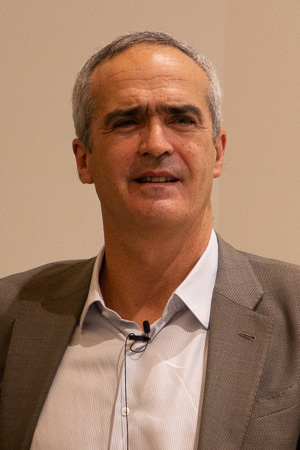
Rosario Rizzuto University of Padova
Rosario Rizzuto graduated in medicine and surgery from the University of Padova in 1986. After spending 2 years at Columbia University in New York, he returned to Padua to complete his PhD in Molecular and Cellular Biology and Pathology. Since 1998, he has held the position of professor in General Pathology at different universities. He was also a Director of the Department of Biomedical Sciences and member of the University Senate of the University of Padova before becoming a professor at the University of Ferrara. In 2008, he returned again to the University of Padua, as Professor of the Medical Faculty. Rizzuto's current research focuses on intracellular calcium homeostasis, in particular, how manipulation of mitochondrial calcium regulates disease pathogenesis. Dr. Rizzuto has been the recipient of the Chiara D'Onofrio prize, the Biotec award, the Theodor Bucher medal, and the Antonio Feltrinelli prize.

Agnès Rötig Imagine Institut
Agnès Rötig is currently a research director at L'Inserm en Ile-de-France (INSERM). Her research focuses on the genetics of mitochondrial disease, with emphasis placed on identifying the heterogeneity of nuclear genes in mitochondrial dysfunction, understanding mitochondrial DNA replication during embryo-fetal development, and targeting fibroblasts for mitochondrial diseases.

Jared Rutter Howard Hughes Medical Institute
Jared Rutter received a bachelors degree from Brigham Young University and a PhD from the University of Texas Southwestern Medical Center at Dallas. Dr. Rutter is a professor in the Department of Biochemistry at the University of Utah and an Investigator with the Howard Hughes Medical Institute since 2015. He is also a member of the Nuclear Control of Cell Growth and Differentiation Program at Huntsman Cancer Institute. At the university, Rutter and his research group study how cells sense and detect energy needs for growth. Specifically, his research is centered upon biochemically identifying the mitochondrial proteome, the metabolic underpinnings of cancer, and understanding the mechanisms of metabolic control. In 2018, Rutter was selected a National Award Finalist for the Blavatnik National Awards.
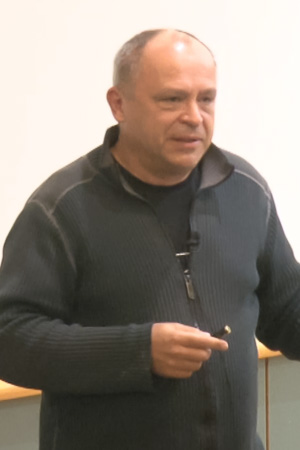
Leonid Sazanov Institute of Science & Technology
Leonid Sazanov received his PhD in Biophysics from the Moscow State University in Russia in 1990. Upon graduation, Sazanov became a Research Fellow for the Department of Biokinetics at the Belozersky Institute of Physicochemical Biology at Moscow State University. In 1997, he became Research Associate for the MRC Dunn Human Nutrition Unit, renamed the Mitochondrial Biology Unit, Cambridge. In 2015, Sazanov became a professor at the Institute of Science and Technology in Austria. His current research group at IST is focused on the structural biology of membrane proteins, especially those from the domain of bioenergetics.

Eric A. Schon Columbia University
Eric Schon received a B.S. in Chemical Engineering from Columbia University before he worked for 10 years for the Procter & Gamble Company in Cincinnati, Ohio as a Technical Brand Manager. He left the industry in 1979 and earned a PhD in Biological Chemistry from the University of Cincinnati in 1982. He completed his postdoctoral work at Harvard University and at Columbia University. Currently, Schon is the Lewis P. Rowland Professor of Neurology, and holds a joint appointment as a Professor in the Department of Genetics and Development. Schon's research is focused on mitochondrial genetics and the molecular basis of human mitochondrial disease. He found that cells from AD patients have massively increased ER-mitochondrial communication, which may help explain many of the seemingly unrelated features of the disease. This may play a fundamental role in the pathogenesis of AD, with implications for both diagnosis and treatment of this devastating disorder.

Luca Scorrano University of Padova
Luca Scorrano received his PhD from the University of Padova Medical School in 2001. Later, he did his postdoctoral work with Stanley J. Korsmeyer at Harvard Medical School. In 2003, he was hired as an Assistant Scientist at Dulbecco-Telethon Institute. There, he studied mitochondrial morphology and proteins. His current research group focuses on the role of mitochondrial morphology and ultrastructure in cell life, death and differentiation. Dr. Scorrano's work has earned him awards such as the Eppendorf European Young Investigator Award in 2006 and led him to become a member of the European Molecular Biology Organization. Scorrano proceeded to become a professor at the University of Geneva and the University of Padova before arriving at his current position. He is currently the scientific director at the Venetian Institute of Molecular Medicine where his focus is mitochondrial remodeling and its role in disease pathogenesis.
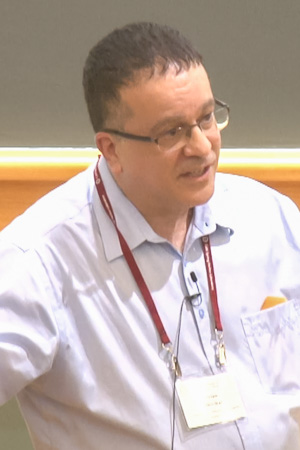
Orian Shirihai University of California
Orian Shirihai earned his MD and PhD from the Faculty of Medicine at the Technion Israel Institute of Technology. Shirihai completed postdoctoral work alongside Professor Stuart Orkin at Harvard University. Dr. Shirihai joined the Department of Medicine at Boston University Medical Center (BUMC) in 2008 from the Department of Pharmacology at Tufts University, where he founded the Mitochondria ARC (Advancing Research through Collaborations), while also serving as the Director of the Cellular Imaging Core. Dr. Shirihai is currently the chair of the Metabolism Unified Research Theme at the David Geffen School of Medicine at UCLA and Professor of Medicine and Molecular & Medical Pharmacology at UCLA where his expertise includes mitochondrial bioenergetics and dynamics, as well as imaging mitochondrial architecture.
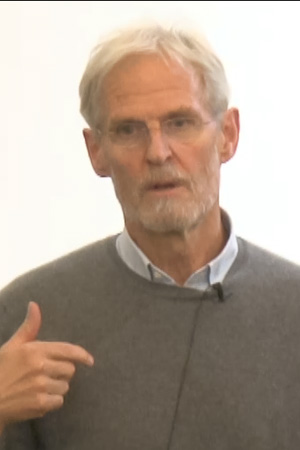
Eric A. Shoubridge McGill University/MNI
Eric Shoubridge completed his PhD at the University of British Columbia in 1981 and his post-doctoral training at Oxford before joining the Montreal Neurological Institute in 1985. He is recognized internationally for his research on molecular genetics of mitochondria and the identification and the characterization of mitochondrial disease genes. Dr. Eric Shoubridge is a professor and chair of the Department of Human Genetics at the Montreal Neurological Institute of McGill University. He has a research group and laboratory in the MNI that focuses on deciphering the function of nuclear encoded mitochondrial proteins and their role in mitochondrial disease pathology. Among his many awards and honors, he has been an International Research Scholar of the Howard Hughes Medical Research Institute and a Senior Investigator of the Canadian Institutes of Health Research. Dr. Shoubridge was the recipient of the Jacob's Ladder award for outstanding research in neurogenetics (2006), the Champion of Genetics Award (2012), and was elected as a Fellow of the Royal Society of Canada (2004).

Bruce M. Spiegelman Dana-Farber Cancer Institute
Bruce Spiegelman received his PhD in Biochemistry from Princeton University in 1978 and completed postdoctoral work at Massachusetts Institute of Technology. In 1982, he joined the Dana-Farber Cancer Institute of Harvard Medical School and was promoted to professor in 1991. Currently, he is the Stanley J. Korsmeyer Professor of Cell Biology and Medicine. His research focuses on cell differentiation, cellular metabolism, and genetic factors involved in obesity and diabetes. His work has been recognized by awards such as the Heinrich Wieland Prize in Lipid Metabolism (1997), MERIT Award (1997), American Academy of Arts and Sciences (2002), the Berson Award (2002), the Banting Medal (2012), and the InBev-Baillet Latour Health Prize.

James B. Stewart Max Planck Institute for Biology of Ageing
James Stewart received his PhD in Molecular Biology and Molecular Evolution from the Simon Fraser University, Canada in 2006. He completed his postdoctoral work at the Korolinka Institutet, as well as Max Planck Institute for Biology of Ageing. Dr. James Stewart started his own lab and became Research Group Leader at the institute in 2014. The lab focuses on mitochondrial DNA mutations, and their role in mitochondrial disease, natural ageing, and complex human diseases. More specifically, Dr. Stewart's research group addresses how mitochondria acquires mutations, and what effect this has on organismal health and ageing. He was awarded the Wenner-Gren Postdoctoral Fellowship in 2007 and 2008, and the Chairman's Award from the United Mitochondria Disease Foundation in 2013.

Bruce Stillman Cold Spring Harbor Laboratory
Dr. Bruce Stillman is President and Chief Executive Officer of Cold Spring Harbor Laboratory. A native of Australia, he obtained a Bachelor of Science degree with honors at The University of Sydney and a Ph.D. from the John Curtin School of Medical Research at the Australian National University. He then moved to Cold Spring Harbor Laboratory as a Postdoctoral Fellow in 1979 and has been at the Laboratory ever since, being promoted to the scientific staff in 1981. Dr. Stillman has been Director of the Cancer Center at Cold Spring Harbor since 1992, a position he still holds. In 1994, he succeeded Nobel Laureate Dr. James D. Watson as Director of Cold Spring Harbor Laboratory and was appointed President in 2003.
Dr. Stillman’s research focuses on how chromosomes are duplicated in cells, a process that ensures accurate inheritance of genetic material from one generation to the next.
For his research accomplishments, Dr. Stillman has received a number of honors including election as a Fellow of The Royal Society, to the US National Academy of Sciences, and to the American Academy of Arts and Sciences. In 1994, Dr. Stillman was awarded the Julian Wells Medal (Australia) and in 1999 he was appointed an Officer of the Order of Australia (AO) for service to scientific research in the field of molecular biology. In 2004, Dr. Stillman and Dr. Thomas Kelly of Memorial Sloan Kettering Cancer Center were awarded the Alfred P. Sloan Prize by the General Motors Cancer Research Foundation. In 2006 Dr. Stillman received the Basic Science award from the Society of Surgical Oncology. In 2010, Drs. Stillman and Kelly received the Louisa Gross Horwitz Prize from Columbia University. He is the winner of the 2014 Herbert Tabor Research Award given by the American Society for Biochemistry and Molecular Biology. Dr. Stillman has received five honorary doctorates.
Dr. Stillman is a member of the Medical Advisory Board of the Howard Hughes Medical Institute and advises a number of other research organizations, including the M.I.T. Cancer Center, the Lewis-Sigler Institute of Princeton University and the Walter and Eliza Hall Institute of Medical Research in Melbourne, Australia. He was chair of the Board of Scientific Counselors of the National Cancer Institute and former vice-chair of the National Cancer Policy Board. He currently serves on the Board of Scientific Advisors of the National Cancer Institute.

Anu Suomalainen University of Helsinki
Anu Suomalainen received a MD degree in 1991 from the University of Helsinki, Finland. After receiving her PhD in 1993 focusing on mitochondrial DNA mutations in diseases, she relocated to McGill University, later returning to Finland to continue her postdoctoral work in molecular genetics in the research groups of Leena Peltonen and Eric Shoubridge.
In 2001, Anu established a research group in Biomedicum-Helsinki that belongs to the FinMIT Centre of Excellence of the Academy of Finland. Her research group focuses on the discovery of molecular mechanisms underlying primary and secondary mitochondrial dysfunction in disease, with an emphasis on neurodegeneration.
In 2007, Anu became Sigrid Juselius Professor of Clinical Molecular Medicine at the University of Helsinki, Finland. Since, her work has been recognized with international awards, including Andres Jahre and Europe et Medicin prizes.
Anu Suomalainen is acknowledged world-wide as an expert in the field of nuclear control of mitochondrial DNA maintenance, and the genetics of mitochondrial disorders. She has developed models for these disorders and used basic physiological knowledge from the models to develop therapies for the current incurable mitochondrial disorders.
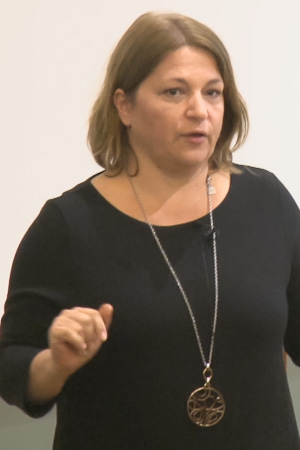
Aleksandra Trifunovic University of Cologne
Aleksandra Trifunovic received her PhD from the Institute of Molecular Genetics and Genetic Engineering at Belgrade University, Serbia in 2000. After that, she went on to complete her postdoctoral work at Karolinska Institute in Sweden. The same institute hired her as an Assistant Professor in 2006 and promoted her to Senior Scientist in 2009. In 2014, Dr. Trifunovic began working as a professor of Mitochondrial Disease and Ageing at the University of Cologne, Germany. She is currently Head of Research and Principal Investigator for the Institute for Genetics. She and her research group are investigating mitochondrial stress responses and the cell's corresponding adaptive reactions. By deciphering the signaling cascades, they are seeking to understand the pathomechanisms of mitochondrial diseases and develop new therapeutic approaches. She was the recipient of the Jeanssons Foundation Annual Award in 2007.

John Walker University of Cambridge
John E. Walker is a British biochemist, who attended St. Catherine's College, Oxford. There, he received a Bachelor of Arts degree in Chemistry and then began his study of peptide antibiotics alongside Edward P. Abraham in the Sir William Dunn School of Pathology. In 1969, he became concerned with developments in molecular biology while obtaining his Doctor of Philosophy degree.
Shortly after receiving his PhD, he established his career in the University of Wisconsin- Madison and then later in France where he worked at the CNRS at Gif-sur-Yvette and then at the Institut Pasteur. In 1974, he attended an EMBO (The European Molecular Biology Organization) sponsored workshop at the University of Cambridge entitled 'Sequence Analysis of Proteins'. Here, he met the renowned molecular biologists Fred Sanger and J. Ieunan Harris, resulting in an invitation to work at the Laboratory of Molecular Biology of the Medical Research Council.
His work began in 1978 with the analysis of sequences of protein from G4 and from mitochondria using direct methods. This led to the discovery of triple overlapping genes in G4 and the discovery that subunits I and II of cytochrome c oxidase were encoded in mitochondrial membrane and the DNA sequence of the mitochondrial genome. That same year, he began a structural study of the ATP synthase from bovine heart mitochondria and from eubacteria. These studies resulted in a complete sequence analysis, giving new insights into how ATP is made in the biological world. Currently, he resides at the University of Cambridge within the MRC Mitochondrial Biology Unit, where his work continues to focus on understanding the molecular mechanism of how ATP is made.
John E. Walker's work has led him to receive numerous awards such as the A. T. Clay Gold Medal (1959), the Johnson Foundation Prize by the University of Pennsylvania (1994), the CIBA Medal and Prize of the Biochemical Society (1996), the Peter Mitchell Medal of the European Bioenergetics Congress (1996), and the Gaetano Quagliariello Prize of Research in Mitochondria by the University of Bari, Italy (1997). In 1997, he shared the Nobel Prize in Chemistry with Paul D. Boyer for their elucidation of the mechanism underlying the synthesis of ATP.
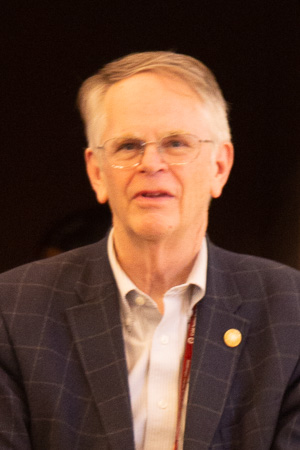
Douglas Wallace Children’s Hospital of Philadelphia
Douglas C. Wallace is an evolutionary biologist who earned his Bachelor of Science in Genetics and Developmental Biology at Cornell University in 1968. He also received his Master of Philosophy degree in Microbiology and Human Genetics at Yale University in 1972, later earning a PhD in Microbiology and Human Genetics at Yale in 1975.
Douglas remained at Yale University as a postdoc until he was granted professorship at the Stanford University School of Medicine in 1976, and eventually transitioning to a professor at Emory University in 1983. In 2002, he became a professor of Molecular Genetics at the University of California, where he founded the Center for Molecular and Mitochondrial Medicine and Genetics. In 2010, he became a professor of Pathology and Laboratory Medicine at the University of Pennsylvania and was granted the position that he currently holds as the founding director of the Center for Mitochondrial and Epigenomic Medicine at the Children's Hospital of Philadelphia.
Dr. Wallace's work revolves around the study of mitochondrial DNA. He has been a pioneer in the study of human mitochondrial genome, developing new methods for the analysis of mitochondrial DNA. He demonstrated that human mitochondrial DNA is inherited exclusively from the mother and alterations in the mitochondrial DNA can result in a wide variety of disease states. His studies revealed that humans arose in Africa approximately 200,000 years ago and that women left 65,000 years ago to colonize Eurasia.
As a member of the National Academy of Sciences, he has received numerous accolades including the Gruber Prize in Genetics (2012), the Benjamin Franklin Life Sciences Medal (2017), and the Dr. Paul Janssen Award for Biomedical Research.
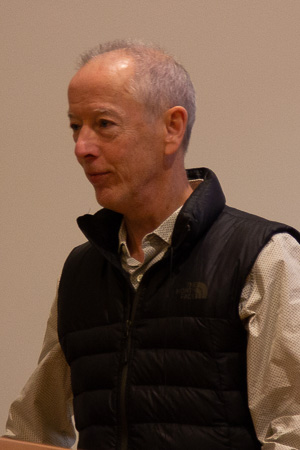
Richard Youle NINDS, NIH
Richard Youle received an A.B. degree from Albion College and his PhD from the University of South Carolina in 1977. He joined the lab of David Neville at the National Institute of Mental Health for postdoctoral work focusing on engineering new cell-type-specific protein toxins. In 1985, he became Principal Investigator of the Surgical Neurology Branch of NINDS and developed and moved new treatment strategies for brain tumors into clinical trials. Most recently his lab has discovered functions and interrelationships among proteins mutated in familial Parkinson's disease. His current work focuses on molecular mechanisms of autophagy, mitochondrial quality control and neurodegenerative disorders. Dr. Youle has been awarded the Pierce Immunotoxin Award (1988), the NIH Directors Award (1992), the Mentor Award, Inventor's Hall of Fame (1998), and the NIH Directors Award (2011).

Ian Young Australian National University
Ian Young is Professor of Molecular Biology and head of the Cytokine Molecular Biology and Signaling Group within the John Curtin School of Medical Research at the Australian National University College of Health & Medicine. Dr. Young received his PhD in 1969 at the Australian National University under the supervision of Frank Gibson where he continued there and was appointed Head of the Medical Molecular Biology Unit in 1984. In 1979, he spent a year with Fred Sanger at the Laboratory of Molecular Biology in Cambridge sequencing mitochondrial genomes. His research has focused on how cytokines drive allergic-inflammation in asthma and leukemia. He received the LKB Medallist of the ASBMB in 1985, and the 2005 Lemberg Medal.
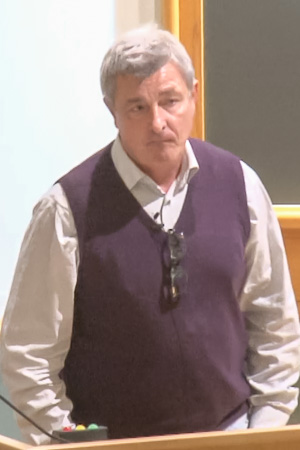
Massimo Zeviani MRC- University of Cambridge
Massimo Zeviani obtained a PhD award in Genetics in 1997 at the University Paris, France. In 2011, Zeviani became the Director of the Department of Molecular Medicine at the Istituto Neurologico in Italy. In 2013, he moved to become the Director of the MRC Mitochondrial Biology Unit in the University of Cambridge. He is actively committed to the elucidation of the molecular basis of mitochondrial disease, by identifying new mitochondrial disease genes in selected patients, investigate on the pathophysiology of mitochondrial disorders, and shed light on the mechanisms underpinning tissue specificity, variability of genetic penetrance, and clinical diversity typical of these conditions. He is the author of about 350 scientific publications in peer-reviewed journals, and has received numerous awards including: the Rene Descartes EU award (2004), The Gaetano Conte Prize (2009), and the Grand Prix of the NRJ Foundation (2013).